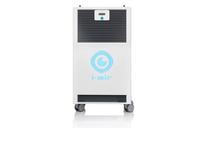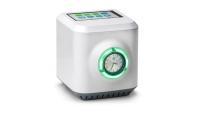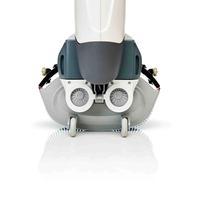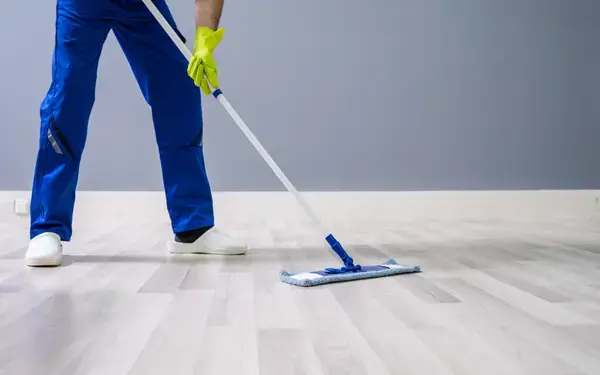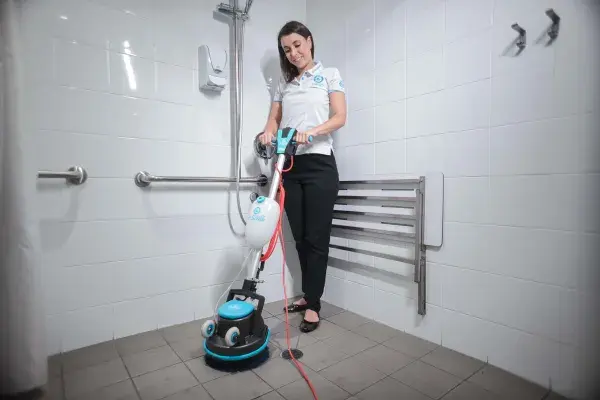You are reading: Five of the Best Commercial Air Purifiers 2024
01 January 2024
10min read time
Brooke Payne
Five of the Best Commercial Air Purifiers 2024
Share:

Air purifiers are an essential part of an Indoor air quality strategy for commercial environments. They can remove pollutants, allergens, and improve the overall air quality, making them especially beneficial for those with allergies or asthma. By adding an air purifier to your office or commercial workspace, you can significantly improve the air quality and the health outcomes for your staff and customers.
Key Insights
- A HEPA grade of H13 can remove 99.95% of all particles in the air measuring 0.2 microns in diameter, while a HEPA grade H14 removes 99.995%
- It's important to look at how much clean air the purifier can replace in your environment
- While everyone can benefit from cleaner air, households or workplaces with children and people who suffer from allergies or respiratory issues should really consider an air purifier
To assist you in selecting the best air purifier for your home or workplace, we have compared five top options in 2024 based on their specifications. To view our comparative table read on below.
What to Look for in a Commercial Air Purifier
While you’re searching the market for a good quality air purifier, keep these five things in mind.

1. Filtration Efficiency
Air purifiers are designed to address several types of contaminants that impact indoor air quality. These include:
- Particulate matter (dust, dirt, salts, metals)
- Finer particulate matter (car or machinery exhausts, smoke)
- Volatile organic compounds (aerosols, paints, chemicals)
- Biological contaminants (bacteria and viruses)
HEPA stands for high-efficiency particulate air filtration. A HEPA grade of H13 can remove 99.95% of all particles in the air measuring 0.2 microns in diameter, while a HEPA grade H14 removes 99.995%. H13-H14 HEPA are within the highest tier of HEPA air filtration and are considered medical-grade.
There are also active carbon filters that capture large particles and breaking down volatile organic compounds, and UVC lights which kill microbes and viruses. The leading air purifiers on the market offer photocatalytic oxidation, or PCO technology, to filter out and kill ultra-fine contaminants down to 0.1 microns.
2. Clean Air Delivery Rates
It's important to look at how much clean air the purifier can replace in your environment. This information should be listed by the manufacturer as a clean air delivery rate, which refers to the volume of air replaced in an hour. The higher the figure, the faster the air purifier will be able to filter all the air in your surroundings.
In a commercial context, opting for the air purifier that offers the highest clean air delivery rate is a great sign of confidence, but this may come at the cost of filtration efficiency, which is something to compare between different purifiers.
3. Filter Size
The size of an air purifier’s filter makes an enormous difference when it comes to long-term maintenance. Air purifiers with a compact filter will fill-up and need to be cleaned and even replaced every few weeks, while a large filter allows users to set-and-forget and replace the filter every 12-months.
4. Noise Levels
Take note of the noise, or decibel rating, which will give you an idea of how loud an air purifier is. Generally, sound above 70 decibels can be annoying or damage your hearing over time so it can be important to find a product that has a low decibel level especially if your air purifier is running all the time (which you want it to be of course!)
5. Control Flexibilities
Leading air purifiers will give you the ability to control from a smartphone app or web browser and remote, which is helpful if you’re operating multiple air purifiers. Most will also have LED screens and simplified controls to make using your air purifier simple.
Read: Top 6 small floor scrubbers
While everyone can benefit from cleaner air, households or workplaces with children and people who suffer from allergies or respiratory issues should really consider an air purifier.
For more information on the i-team range of air purification accessories simply click here .
Common Questions Answered
1. What features should I look for in a commercial air purifier?
Answer: Key features to consider include HEPA filtration for particulate removal, activated carbon filters for odors and gases, noise levels, air changes per hour (ACH), and coverage area to ensure it suits your specific space.
2. How often should air purifier filters be replaced for optimal performance?
Answer: Filter replacement frequency can vary, but generally, HEPA filters should be replaced every 6 to 12 months, while activated carbon filters may need to be changed every 3 to 6 months. Always refer to the manufacturer's guidelines for specific recommendations.
3. Are there energy-efficient options available for commercial air purifiers?
Answer: Yes, many commercial air purifiers come with energy-efficient certifications, such as ENERGY STAR. These models are designed to use less electricity while maintaining effective air purification, which can save on operational costs.
References
Healthline – The Best Air Purifiers of 2024
URL: https://www.healthline.com/health/best-air-purifiers
The Spruce – Best Commercial Air Purifiers
URL: https://www.thespruce.com/best-commercial-air-purifiers-5119913
Forbes – Best Air Purifiers for Offices and Commercial Spaces
URL: https://www.forbes.com/home-improvement/home/best-air-purifiers/
A Comparison of the Top 5 Commercial Air Purifiers
 |  |  |  |  | |
|---|---|---|---|---|---|
| Air Purifier Name | Rensair Q01B | Radic8 VK103 | InovaAir E600R | Karcher AF100 | i-team i-air PRO |
| Filter Type | HEPA H13 | HEPA H13 | HEPA H13 | HEPA H13-14 | HEPA H14 |
| Typical Filter Life | 12-month | 8-month | 12-month | 12-month | 24-month |
| VOC reduction | 99.97% | 99.97% | 99.5% | 99.5% | 99.97% |
| Output Air Quality | MERV 19 | HEPA H13 | MERV 11 | HEPA H13-14 | MERV 19 |
| Air output (Clean Air Delivery Rate) | 560m3/h | 339-608m3/h | 0-1,200m3/h | 700m3/h | 200-600m3/h |
| UVC & UVA | Yes | Yes | No | No | Yes |
| Max Room Size | 200m2 | 100m2 | N/A | 100m2 | 500m2 |
| Noise Level | Low = 45dB Med = 52dB High = 59dB | Low = 40dB High = 49dB | Low = 32dB High = 58dB | Min = 26dB Max = 48dB | Low = 32dB Med = 52dB High = 56dB Max = 61dB |
Products Featured Inside this Article
Media and Insights
Join the movement that's changing what clean means.
Be part of a cleaner world. Get a live demo at a time that suits you.
Book a Demo